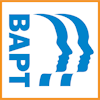Bringing Type to Life – the Antidote to Zoom
In-Person Workshop Friday April 22nd 2022, London
This was a unique opportunity to meet in-person with type experts and practitioners for a day of activity and networking.
Find out more about what we did as we share images from the event.
Sessions & Facilitators
 Bringing the Cognitive Process to Life: Susan Nash
Bringing the Cognitive Process to Life: Susan Nash
How many times have you struggled introducing the cognitive processes (or function-attitudes) to clients in a way that simplifies the delivery and yet recognizes the richness of the content? In this session, you will practice a variety of experiential activities to bring the cognitive processes to life. Most adults enjoy learning by doing and this workshop will provide you with ideas and techniques to make type interactive and relevant to all learning styles.
Susan Nash is owner of EM-Power Inc and the Type Academy. She specializes in publishing type-related books and delivering workshops to help apply type knowledge to improve personal and business relationships, and organizational effectiveness
 Using Both/And to Power Up Type Exercises: Jane Kise
Using Both/And to Power Up Type Exercises: Jane Kise
What if one engaging exercise could help your participants understand their own type preference, the value of the “other side,” the difference between type and trait theories, type’s impact on communication and relationships, the differences between preferences and skills development, all while applying the concepts to a team issue? Welcome to using polarity thinking, exploring interdependent sets of values that over time need each other, to introduce type. In this session, you’ll experience such an exercise and pick up tips on using such exercises with clients.
Jane Kise, Ed.D., has been working with type concepts for about three decades. The author or coauthor of many books, she has researched, written, and facilitated workshops around the world on type and leadership, spirituality, education, saboteurs, bandwidth, and more.
 Type in Tandem – How the perceiving functions work together with magical results: Sue Blair
Type in Tandem – How the perceiving functions work together with magical results: Sue Blair
I don’t believe we were ever meant to use the Jungian functions in isolation. Nothing stands alone. Uniting opposite functions is the alchemy of Type. How can we explain this to our clients clearly and effectively without causing confusion?
This session explores practical ways to do this. What images can be used? What questions can be asked? What life lessons can be learnt?
Sue Blair is a speaker, author and coach who has worked with type for nearly 20 years. She specializes in taking this complex theory and providing practical, simple, yet accurate ways to explain its depth. She is the author of The Personality Puzzle coaching cards.
 Bringing Interaction Styles to Life: Catherine Stothart
Bringing Interaction Styles to Life: Catherine Stothart
How often do we listen to a speaker, nod wisely, then fail to implement what we have just “learned”? This is especially true of behaviour – there is no substitute for learning from experience. This activity – based on the game Bananagrams – enables you to introduce the Interaction Styles lens of type to your clients in a practical way. They get valuable insights about what drives their behaviour and stresses them when they interact with others – and what to do about it.
Catherine Stothart is a Leadership Coach with Airbus, and a partner in Google’s Mastery Faculty of virtual facilitators. Her 2018 book, published by Pearson, How to Get On with Anyone, is based on Interaction Styles. She’s now working on her second book – on Motivation.
 Speed Sharing: Sarah Perrott
Speed Sharing: Sarah Perrott
Sarah will close the workshop by introducing us to an effective way to ensure that our clients turn their learning and insights into practical application.
Sarah Perrott is a Consultant and Executive coach working with individuals and teams. She is passionate about enabling others to flourish. Sarah has been working with type for many years and is the President of BAPT.



